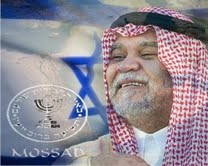Saudis and Israelis wanted to sink the negotiated deal on Iran’s nuclear program, so the French launched the diplomatic torpedo to take it down. But behind France’s action were Saudi financial muscle and Israel’s “political skill”.
France’s sabotage of a compromise agreement on Iran’s nuclear program is a textbook case of how the new Saudi-Israel alliance can disrupt President Barack Obama’s strategy for resolving Middle East disputes through diplomacy, not war.
Over the summer, Saudi officials including intelligence chief Prince Bandar bin Sultan visited European capitals dangling financial deals and energy concessions to countries if they would line up behind Saudi and Israeli desires for military intervention in the crisis in Syria and heightened economic warfare against Iran.
The carrots were particularly appealing to the French who are struggling with a sluggish economy, high unemployment and a recent credit downgrade. So, the flash of Saudi petro-dollars got the attention of the French government.
Just last month, French Defense Minister Jean-Yves Le Drian celebrated the signing of a $1.5 billion deal with Saudi Arabia to overhaul six of its navy ships. In July, Saudi Arabia’s ally, United Arab Emirates, signed a $913 million deal with France to buy two high-resolution Helios military satellites.
Other lucrative arms deals are reportedly in the works between France and Saudi Arabia. Saudi Arabia also has deployed its money to bolster France’s sagging agricultural and food sectors, including a Saudi firm buying a major stake in Groupe Doux, Europe’s largest poultry firm based in Brittany.
The Saudis, however, had less success with other countries. In a meeting with Russian President Vladimir Putin, Bandar reportedly offered cooperation on oil and natural gas interests as the carrot for getting Putin to abandon the Syrian government.
But it was Bandar’s implicit stick of renewed violence by Chechen and other Saudi-backed militants that backfired. Putin reacted angrily, according to diplomatic accounts of the meeting, and adopted an even tougher stance against Saudi desires in the Middle East.
Putin also stepped up his cooperation with President Obama in searching for negotiated settlements to longstanding disagreements in the Middle East, including a U.S.-Russia-brokered deal to get the Syrian government to give up its chemical weapons, a joint push for Syrian peace talks in Geneva and a plan to resolve the Iranian nuclear dispute.
“Israel” and Saudi Arabia agree that Iran is the greatest threat to their regional interests. Both countries have indicated that they want the government in Syria to be overthrown even if that means it will be replaced by Saudi-backed Extremist”jihadists” linked to al-Qaeda.
But what makes the Saudi-Israeli alliance so influential is the complementary strengths of the two countries. Israel has extraordinary skills at lobbying and propaganda, especially in influencing Official Washington and Capitol Hill. Saudi Arabia has vast financial resources that can turn the heads of defense officials in Paris, oil men in Houston or investment bankers on Wall Street. Together these strengths can make the negotiation of any good-faith compromise with Iran or Syria difficult, if not impossible.
Source: Consortium News
B.N

